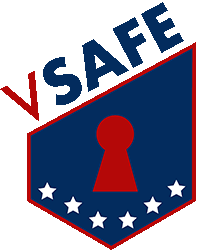Learn about Fraud and what you can do about it.
Fraud attempts targeting Veterans, their families, survivors, and caregivers are on the rise. Fraud can be defined as intentional deception that results in the loss of money or benefits. Fraudsters, or bad actors, are actively evolving new tactics to deprive Veterans of their hard-earned cash and benefits. A November 2021 American Association of Retired Persons (AARP) study found that 78% of Veterans have been targeted by scams designed to exploit their military service history.
Veterans are often targeted because they have access to benefits and resources. Imposter scams account for nearly 40% of the military community’s fraud losses. They can be anything from online romance scams to grandparent scams claiming the grandchild is in trouble. Often, the goal is to gain access to the benefits the government provides to those who served. Scams affect every age group, harming younger people and older adults.
Below are a few examples of real-life examples of fraud:
A Marine Corps Sergeant discovered dozens of fake Facebook accounts using stolen photos of him. These fake accounts flourish on Facebook and Instagram, where bad actors impersonate real American service members to cheat people out of money. Stories of these types of imposter scams are all too prevalent. Another typical scam is advertisements for special loan rates or terms for active duty military and Veterans. One retired Army Veteran experienced this by refinancing with what looked like favorable rates only to learn that they lost over $25,000 while only getting $5,000 in return. They were taught “trust but verify” and thought they had done due diligence only to be scammed.
Know that if you have experienced fraud, you are not alone. Often, shame or victim blaming is a common theme in stories about fraud. In reality, criminals are sophisticated and prey on good intentions and trust. It should always be shame on them, not shame on you.
About This Toolkit
We are fighting back with initiatives to protect and assist Veterans, their families, survivors, and caregivers. This toolkit is a partnership between federal agencies, Veteran Service Organizations (VSOs), Military Service Organizations (MSOs), and the VA to arm our Veterans with the knowledge of the common schemes we are seeing. We will provide tips and tricks to prevent this from happening. The first section of the Toolkit talks about General Fraud, followed by the following areas: Imposter Scams, Healthcare, Finances, Housing, PACT Act, Employment, Education, and Memorialization.





